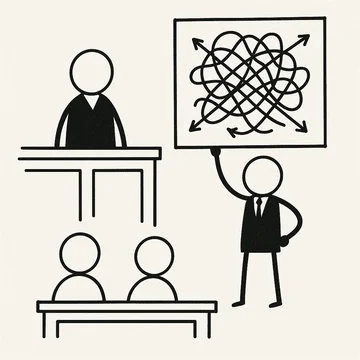As frequent readers of this blog already know, some judges in Delaware have limited parties to a total of 10 terms for construction across all asserted patents.
We've noted at least one previous instance where Chief Judge Connolly seemed to limit the parties to 10 claim construction disputes. Last week, the Court made an even clearer statement on the issue.
The parties in MG FreeSites Ltd v. ScorpCast, LLC, C.A. No. 20-1012-CFC-JLH (D. Del.) filed their joint claim chart in advance of claim construction, and listed 15 terms in dispute. They also included a footnote smartly noting Chief Judge Connolly's practice not to permit argument on indefiniteness at the claim construction stage.
They then filed a stipulation stating that the parties would present only 15 terms and—in a risky move—extending the page limits for claim construction briefing.
The Court denied the stip, limiting them to no more than 10 terms, and rejecting the page limit extensions:

If the text in the above image is hard to read on your screen, it says:
Each side may designate no more than 5 terms. . . .
The word limitations in the Scheduling Order remain in effect. If the Court determines that one side has designated frivolously a term or phrase for construction, the Court may preclude that side from seeking further construction of terms or phrases.
That final line hints at something like Chief Judge Connolly's dispositive motions procedure, instituted earlier this year, where he requires parties to rank their summary judgment motions, and if he denies one, he will also deny any lower-ranked motions.
It's Worth Paying Attention to This Kind of Seemingly-Obscure Precedent
It may seem weird that this blog often pays a lot of attention to hard-to-find oral orders, transcripts, stipulation denials, and seeming 6,778-page accidents. But procedure can make a huge difference in big patent cases, and knowing it really gives you an edge—not only in terms of actually prevailing in the case, but also in avoiding potential pitfalls (like accidentally losing your trial date) and in litigating the case more efficiently. Knowing the judges' practices and preferences undoubtedly helps a busy Court, too.
Plus, the fact is, even obscure unpublished orders can sometimes have a big effect in Delaware. Judge Connolly has instituted a similar limit before, although it was easy to miss. The 10-term limit itself traces its roots in part to former Chief Judge Sleet's longstanding practice of limiting parties to 10 terms per patent, which was first set forth in a footnote to an unpublished order but persisted for 9 years until his retirement.
We'll continue to keep an eye out for these kinds of obscure but meaningful orders, and if you practice here in the District of Delaware, you should too.
(And please let us know if we miss anything good (or get anything wrong)!)
If you enjoyed this post, consider subscribing to receive free e-mail updates about new posts.




